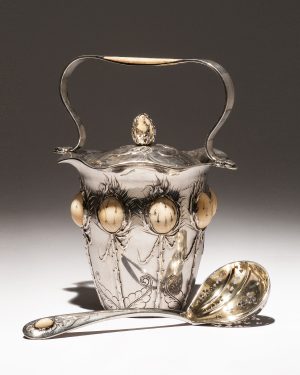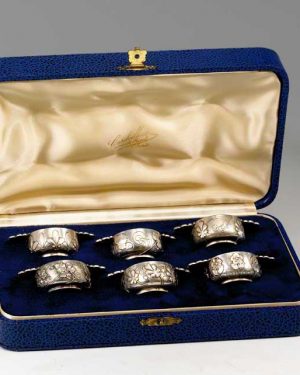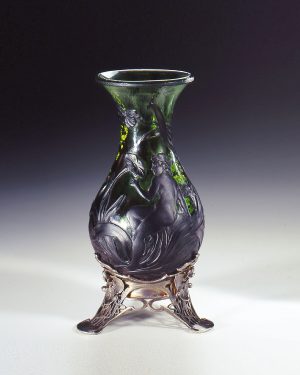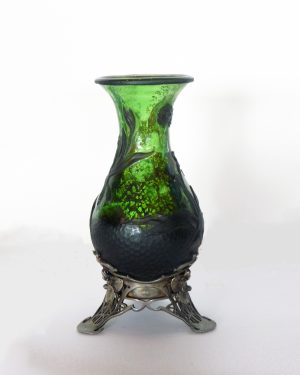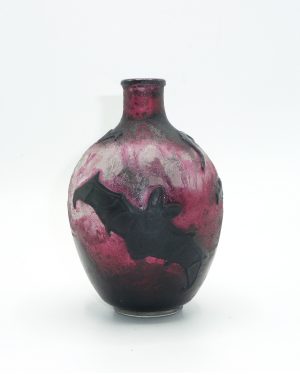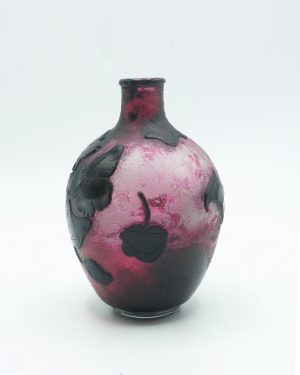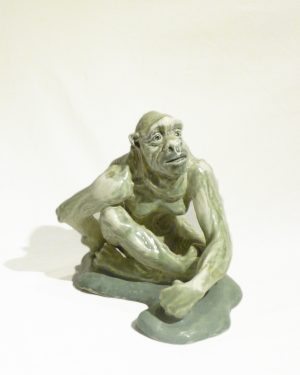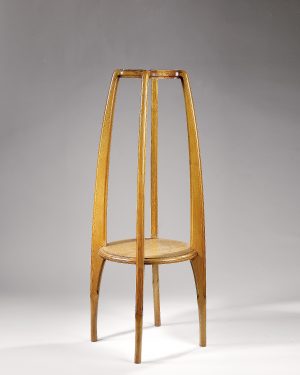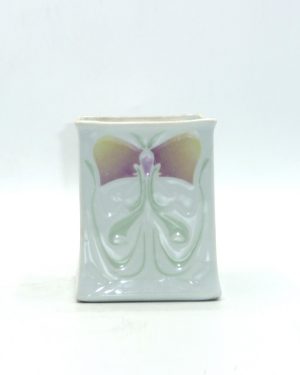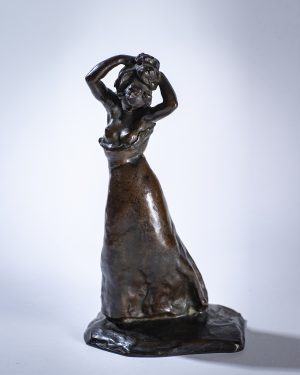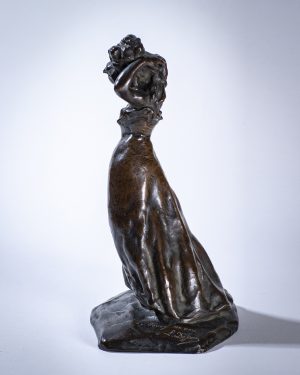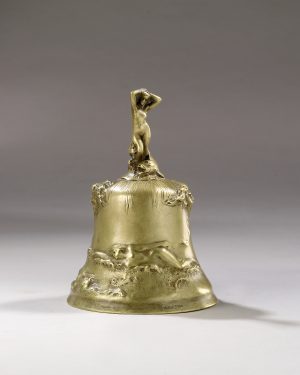“JEUNE FEMME A SA TOILETTE” OR “JEUNE FEMME SE COIFFANT”, 1901
Bronze
Signed and dedicaced A L. Bouvy son ami L. Dejean
Height: 31 cm.
The plaster model is in the collections of the Petit Palais, inv. PPS3051, 31 x 13.5 x 15 cm, a gift from the artist in 1951
No other example is known
Bibliography
1901 SNBA
“Saisir la femme contemporaine en sa vie, en ses allures, en ses atours ; interpréter l’actuelle Parisienne en mignonnes statuettes, comme les chloroplastes de Tanagra nous ont transmis les élégances antiques de la Boétie, tel paraît être le projet de M. Dejean, et qu’il réalise avec bonheur; voici la Jeune femme à sa toilette si joliment déhanchée, et la voilà mélancolique, puis encore à la Promenade, avec cette démarche si fidèlement notée, enfin Sortant du bal, toute pleine d’une majesté amusante”. (Marcel Nicolle “La Sculpture aux Salons”, Art et Décoration, July 1901, page 14).
“Deux groupes d’œuvres se recommandant par une grâce neuve et me paraissent mériter une mention toute spéciale….N’est-ce pas ce qu’a tenté M. Dejean, et voyez avec quel bonheur! Quoi de plus frais et de plus charmant que ces figurines, grassement et finement modelées, qui sont si bien d’aujourd’hui, où pourtant la beauté de la femme et la tiède souplesse de sa chair vit et palpite sous l’ampleur ou l’étrangeté des modes. Minois futés et naïfs, corps potelés et souples, rythme heureux des draperies tout est en délicieux accord en ces menus chefs-d’œuvre. La Sortie de bal : les épaules, le col, la tête jolie et frivole triomphent doucement hors de l’ample manteau que les mains retiennent; la démarche est balancée et glissante; la Toilette : la gorge jaillit du corsage, le buste se renverse, les reins se cambrent, les bras relevés soutiennent la masse des cheveux, la ligne serpentine ainsi déterminée est d’une grâce exquise; la Bouderie : le rythme charmant de ce jeune corps ployé et le beau dessin de la nuque. Tout cela est d’un art prime-sautier, et du plus vif impressionnisme : on pense à Fragonard, à Willette, à Tanagra; et cela est exempt de tout pastiche”. Maurice Hamel, La petite sculpture aux Salons de 1901, Revue des Arts décoratifs, 1901, pp. 264 et 265
Exhibition
SNBA, 1901, N. 37





